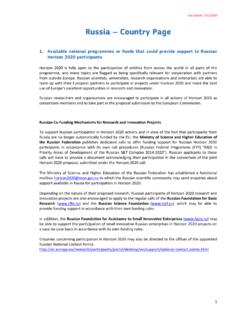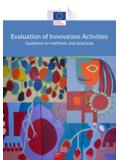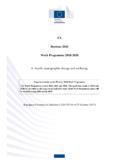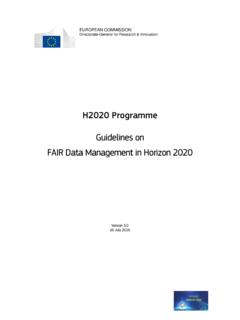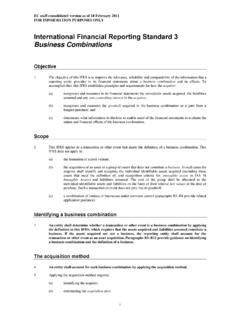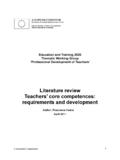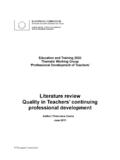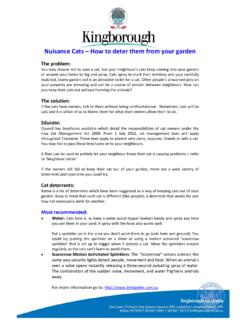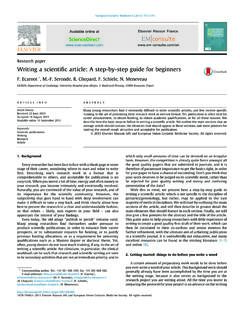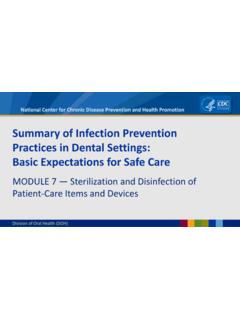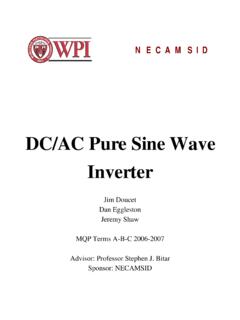Transcription of EU Grants How to complete your ethics self-assessment
1 EU Grants How to complete your ethics self - assessment Version 13 July 2021 EU Grants : How to complete your ethics self - assessment : 0 HISTORY OF CHANGES Version Publication Date Change Initial version (new MFF 2021-2027) Rules for Digital Europe (DEP) and European Defence Fund (EDF) integrated EU Grants : How to complete your ethics self - assessment : 1 IMPORTANT NOTICE This guidance is designed to help applicants and beneficiaries of EU projects make your proposal ethics -compliant. It has been prepared mainly for 3 EU Programmes: Horizon Europe (HE), Digital Europe (DEP) and European Defence Fund (EDF). But it can also be used for other programmes that may require an ethics review to authorise funding (AMIF, ISF, EMFAF, EU4H, etc).
2 The guidance will help you identify and deal with ethics issues that may arise from your project and provide help with filling out your application. This document is however no more than a how to guide. It covers most of the ethics issues that usually arise in EU projects and gives advice on dealing with classic cases. What do you need to provide? If your proposal raises one or more of the issues listed in the ethics issues table, you must also complete the ethics self - assessment . This must include a description of the issue, the way you intend to deal with them in order to ensure ethics compliance and any relevant documents (such as authorisation or permissions that are already available with their expiry date).
3 In case such documents are not yet available, please provide the expected timing. This will allow for a more effective ethics clearance and an accelerated granting process if the proposal is retained for possible funding. The ethics self - assessment will become part of your Grant Agreement (in Annex 1, as description of the action, ethics requirements, etc.) and may thus give rise to binding obligations that may later on be checked through ethics checks, reviews or audits. This means the time you invest in this self - assessment is not wasted. It will actually improve your project and: ensure compliance with applicable international, EU and national law allow your proposal to be processed more easily during the selection procedure contribute to the responsible implementation of your project, thereby increasing its social acceptance allow the results of your project to be published more easily in internationally refereed journals (especially important for research projects).
4 Consider that ethics issues arise in many areas. For Horizon Europe projects, apart from the obvious example, the medical field, research protocols in social sciences, ethnography, psychology, environmental studies, security research, etc. may involve the voluntary participation of research subjects and the collection of data that might be considered as personal. For Digital Europe and EDF, the collection of personal data and the deployment and application of AI in any form are the obvious candidates. However, issues may arise in other fields as well. You must protect the addressees of your project, yourself and your colleagues. Start thinking about ethics while designing your proposal.
5 Do not wait until the last minute to seek advice or check requirements under national and EU law. Use the ethics by design methodology for highly innovative activities ( see section 8 for implementation in artificial intelligence context). EU Grants : How to complete your ethics self - assessment : 2 Your first source should always be at your institution. We would ask you to seek advice from colleagues with ethics expertise, such as: specialised ethics and compliance departments relevant compliance managers hospital ethics committees ethics advisors in your company data protection officers. They will be able to provide you with information appropriate to your specific needs and legal environment.
6 For projects with a significant ethics dimension, consider involving/appointing an ethics advisor/advisory board. From the beginning of your project, an ethics advisor can help you deal with ethical issues and put in place the procedures to handle them appropriately. If your activities includes several ethical concerns or involves several significant or complex ethical issues (such as the processing of special categories of personal data (formerly known as sensitive data ), AI applications involving human-machine cooperation, participation of children from developing countries, non-human primates (NHPs), potential misuse or vulnerable populations), we suggest you appoint an ethics advisor or an ethics advisory board comprising several experts from different backgrounds.
7 The granting authority may also make this an ethics requirement during the selection procedure. For more information, see also Guidelines on serious and complex ethics issues (for EDF, exclusive focus on civil applications not applicable)). EU Grants : How to complete your ethics self - assessment : 3 Table of contents 1. Human embryonic stem cells (hESCs) and human embryos (hEs) (HE, DEP, EU4H and EDF) .. 4 2. Humans (all EU Programmes) .. 8 3. Human cells or tissues (all EU Programmes) .. 15 4. Personal data (all EU Programmes) .. 20 5. Animals (all EU Programmes) .. 27 6. Non-EU countries (all EU Programmes) .. 31 7. Environment, health and safety (all EU Programmes) .. 35 8. Artificial intelligence (all EU Programmes).
8 39 9. Other ethics issues (all EU Programmes) .. 46 10. Crosscutting issue: potential misuse of results (all EU Programmes) .. 48 EU Grants : How to complete your ethics self - assessment : 4 1. Human embryonic stem cells (hESCs) and human embryos (hEs) (HE, DEP, EU4H and EDF) Background This section covers projects with activities involving human embryonic stem cells (hESCs) and human embryos (hEs). For activities involving human embryonic or foetal tissues or cells other than hESCs, see Section 3. The following activities are not eligible for EU funding and cannot therefore be included in proposals: activities directed at human cloning for reproductive purposes activities intended to modify the genetic make-up of human beings that could make such changes heritable (apart from research relating to cancer treatment of the gonads, which may be financed)
9 Activities intended to create human embryos solely for the purposes of research or stem cell procurement, including the technique of somatic cell nuclear transfer1 activities that lead to the destruction of human embryos2 Activities involving human stem cells, both adult and embryonic, may be financed, depending both on the contents of the scientific proposal and the legal framework of the Member States involved. No funding will be granted for activities within or outside the EU that are prohibited in all the Member States. No activity will be funded in a Member State where such activity is Please note that all proposals involving the use of hESCs or hEs will undergo an ethics assessment and, for some programmes, also special approval procedures (for Horizon and EDF, approval by the Programme Committee4).
10 How to address the issues Your research activities must comply with the ethics provisions set out in the Grant Agreement, and notably: highest ethical standards applicable international, EU and national law (in particular, the Statement by the Commission on research activities involving human embryos or human embryonic stem cells5). 1 See Article 18(1) HE Framework Programme Regulation 2021/695. 2 For research activities, see Joint Declarations of the European Parliament, Council and Commission (Framework Programme) (2021/C 185/01). 3 See also Article 18(2) HE Framework Programme Regulation 2021/695. 4 See Article 11(4) HE Specific Programme Decision 2021/764; Article 11(2) EDF Programme Regulation.
